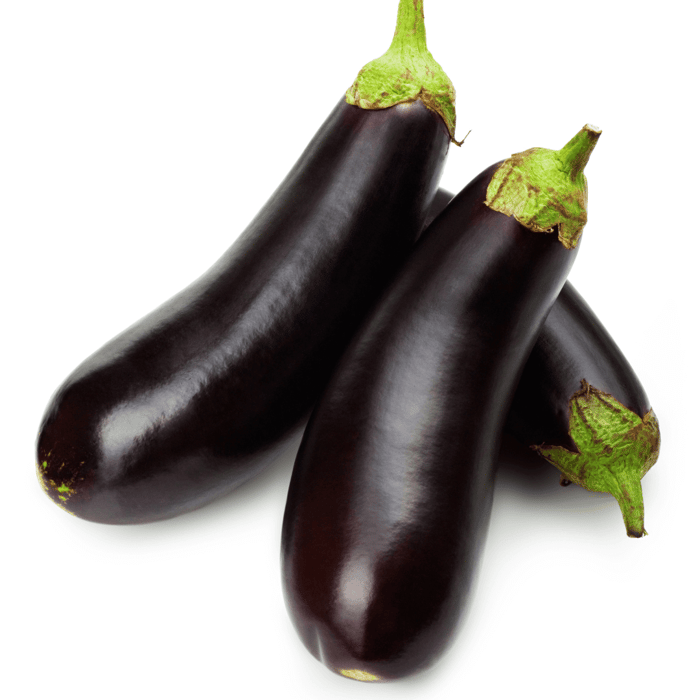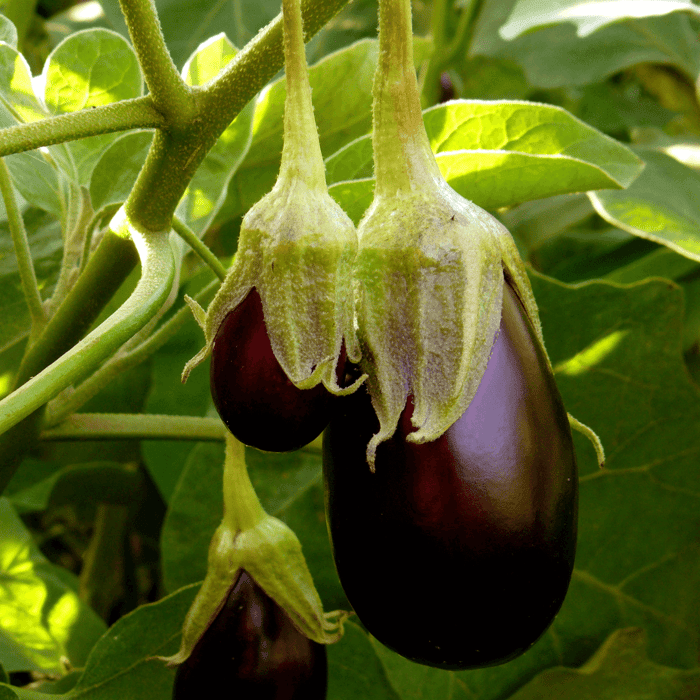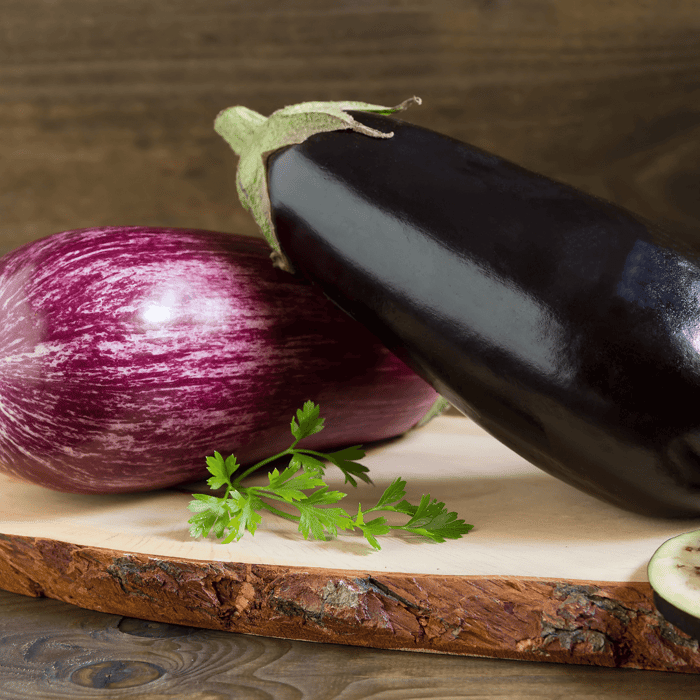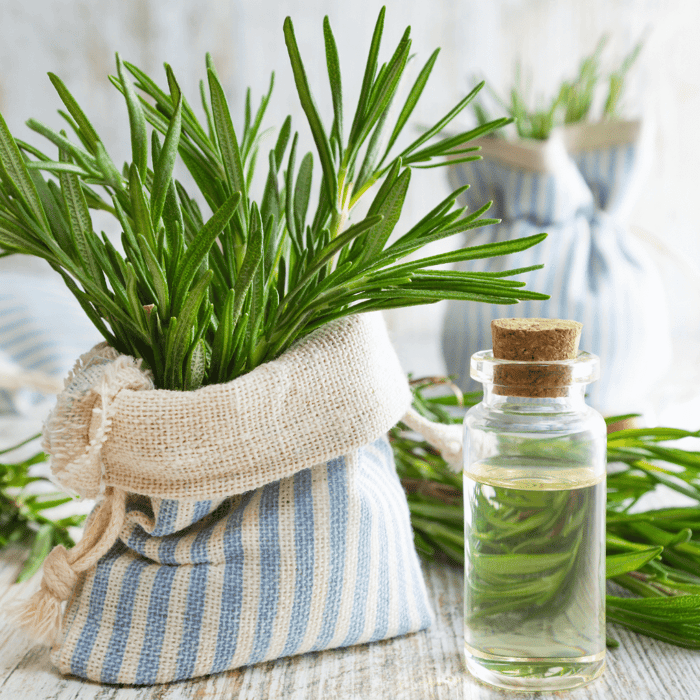Growing your own vegetables can be a rewarding and enjoyable experience, and the Black Beauty eggplant is an excellent choice for your vegetable garden. This dark purple, open-pollinated variety of eggplant is a popular choice among gardeners. In this in-depth guide, we'll walk you through the entire process of growing Black Beauty eggplants, from sowing vegetable seeds to harvesting your delicious eggplants. Let's learn how to grow black beauty eggplant from seeds.
As a dedicated gardener, I have nurtured countless vegetable plants from seeds to maturity, and I am excited to share my knowledge on how to grow this remarkable variety of eggplant.
Table of Contents
- Introduction to Black Beauty Eggplants
- Plant Characteristics
- Choosing the Right Location
- Preparing the Soil
- Planting Black Beauty Eggplant Seeds
- Caring for Your Eggplant Seedlings
- Transplanting Black Beauty Seedlings
- Harvesting Your Black Beauty Eggplants
Introduction to Black Beauty Eggplants
Black Beauty eggplants are a dark purple, an open-pollinated variety known for their delicious taste and versatility in the kitchen. They are a warm-weather crop that requires a long growing season, making them perfect for regions with mild winters and hot summers. In this guide, we will cover everything you need to know about growing Black Beauty eggplants, from choosing the right location to harvesting your delicious crop.
Black Beauty Eggplant Seeds

$2.49
Black Beauty Eggplant Seeds - Heirloom, Non-GMO, Non-Hybrid, Open-Pollinated | Perfect for Home Gardeners and Farmers Grow delicious and beautiful Black Beauty Eggplants with our premium-quality heirloom seeds! These non-GMO, non-hybrid, and open-pollinated eggplant seeds are perfect for home gardeners… read more
Plant Characteristics
Here are some key characteristics of the Black Beauty eggplant variety:
- History of the Seed: The Black Beauty eggplant was first introduced in 1902 and has since become a popular choice for home gardeners.
- Days till maturity: Approximately 80 days from transplanting.
- Planting depth: 1/4 inch deep.
- Plant spacing: 18-24 inches apart.
- Days to germination: 7-14 days.
- Start indoors or direct sown: It is best to start Black Beauty eggplants indoors, about 6-8 weeks before the last frost date.
- Full sun or partial shade: Black Beauty eggplants require full sun for optimal growth.
- When to harvest: Harvest when the fruit is glossy, firm, and dark purple.
- How tall does the plant get: The plant can reach heights of 24-30 inches.
- How wide does the plant get: The plant can spread up to 18-24 inches.
- Native: Black Beauty eggplants are native to Southeast Asia.
- Family: Solanaceae (nightshade family).
Choosing the Right Location
Black Beauty eggplants require a location with the following characteristics:
- Full Sun: The eggplant plants need at least 6-8 hours of direct sunlight per day for optimal growth.
- Well-Drained Soil: Ensure the selected site has well-draining soil to prevent root rot and other diseases.
- Space: Provide adequate space for each plant, with 18-24 inches between each plant and 24-36 inches between rows.
Preparing the Soil
Proper soil preparation is crucial for the successful growth of your Black Beauty eggplants. Follow these steps to prepare your soil:
- Test Soil pH: Black Beauty eggplants prefer a slightly acidic soil pH of 6.0 to 6.8. Test your soil and adjust the pH if necessary by adding lime (to raise pH) or sulfur (to lower pH).
- Amend the Soil: Work organic matter, such as compost or well-rotted manure, into the soil to improve fertility and drainage. This should be done a few weeks before planting.
- Soil Temperature: Black Beauty eggplants require a soil temperature of at least 60°F (15°C) for germination. Use a soil thermometer to check the temperature before planting.
Planting Black Beauty Eggplant Seeds
Start your Black Beauty eggplant seeds indoors, approximately 6-8 weeks before your last frost date. Follow these steps for successful seed starting:
- Prepare Seed-Starting Mix: Use a sterile seed-starting mix that is well-draining and retains moisture.
- Sow Seeds: Plant the seeds about 1/4 inch deep in seed trays or small pots.
- Water: Keep the seed starting mix consistently moist, but not soggy.
- Temperature: Maintain a temperature of 70-85°F (21-29°C) for optimal germination. A heating mat can be used to maintain consistent warmth.
- Germination: Black Beauty eggplant seeds typically germinate within 7-14 days.
- Light: Once the seedlings have emerged, place them in a sunny window or under grow lights for 14-16 hours a day.
Caring for Your Eggplant Seedlings
Taking care of your eggplant seedlings is essential for their growth and development. Follow these tips to ensure healthy seedlings:
- Water: Keep the soil consistently moist but avoid overwatering, which can lead to damping-off or root rot.
- Fertilize: Feed your seedlings with a half-strength liquid fertilizer every two weeks.
- Thin: Once the seedlings have developed their first true leaves, thin them out, leaving the healthiest seedlings to continue growing.
- Harden Off: Gradually expose your eggplant seedlings to outdoor conditions, starting with a few hours of morning sun and increasing the time spent outdoors each day. This process should take 1-2 weeks.
Transplanting Black Beauty Seedlings
Transplant your Black Beauty seedlings into your vegetable garden after the last frost date and when soil temperatures have reached at least 60°F (15°C). Follow these steps for successful transplanting:
- Choose Healthy Seedlings: Select the strongest, most vigorous seedlings for transplanting.
- Prepare Garden Bed: Ensure the soil is well-prepared, with added compost or other organic matter, and well-draining.
- Plant Seedlings: Dig a hole deep enough to accommodate the entire root ball of each seedling. Space the seedlings 18-24 inches apart, with 24-36 inches between rows.
- Water: Water the seedlings thoroughly after transplanting to help them settle into their new environment.
- Mulch: Apply a layer of organic mulch around the base of each plant to help retain moisture, suppress weeds, and regulate soil temperature.
Harvesting Your Black Beauty Eggplants
Harvesting your Black Beauty eggplants at the right time is essential for enjoying their delicious flavor. Follow these tips for a successful harvest:
- When to Harvest: Harvest your eggplants when the fruit is glossy, firm, and dark purple. The skin should be smooth, and the flesh should feel slightly resistant when gently squeezed.
- How to Harvest: Use a sharp knife or pruning shears to cut the eggplant from the plant, leaving a short stem attached to the fruit. Be careful not to damage the plant or other fruits during the process.
- Regular Harvesting: Regularly harvesting your eggplants encourages the plant to produce more fruit. Check your plants every few days for ripe eggplants.
- Storage: Freshly harvested Black Beauty eggplants can be stored in a cool, dark place for up to a week. For longer storage, consider freezing or preserving the eggplants.
Vegetable Seed Vault Kit | 35 Variety Pack

$29.95
$49.95
Ultimate Survival Seed Vault: 16,000+ Non-GMO Heirloom Vegetable Seeds for Emergency Preparedness Introducing the Seed Vault Kit, your all-in-one solution for emergency preparedness and sustainable gardening. This premium seed kit contains over 16,000 non-GMO, Heirloom, Non-Hybrid, and Open Pollinated seeds,… read more
Tips for a Successful Black Beauty Eggplant Garden
To further ensure the success of your Black Beauty eggplants, keep these additional tips in mind:
- Pest Control: Keep an eye out for common eggplant pests, such as aphids, flea beetles, and spider mites. Use row covers to protect young plants and employ organic pest control methods when necessary.
- Disease Prevention: Practice crop rotation and proper plant spacing to reduce the risk of diseases like Verticillium wilt and Fusarium wilt.
- Support: Stake or cage your eggplant plants to provide support and prevent the fruit from touching the ground.
- Companion Planting: Plant Black Beauty eggplants alongside beneficial companion plants like beans, peas, and marigolds to deter pests and encourage healthy growth.
Conclusion
Growing Black Beauty eggplants in your vegetable garden can be a rewarding experience, yielding delicious and versatile fruits for your kitchen. By following this comprehensive step-by-step guide, you'll be well on your way to enjoying a bountiful harvest of these dark purple beauties. With proper care, attention, and patience, you'll be able to savor the fruits of your labor and share your homegrown Black Beauty eggplants with friends and family. Happy gardening!
 Frequently Asked Questions - How to Grow Black Beauty Eggplant
Frequently Asked Questions - How to Grow Black Beauty Eggplant
Here are some common questions and answers related to growing Black Beauty eggplants:
Q: How long does it take for Black Beauty eggplants to grow from seeds to harvest?
A: It takes approximately 80 days from transplanting for Black Beauty eggplants to reach maturity. Start seeds indoors 6-8 weeks before the last frost date to ensure a successful growing season.
Q: How do I know when my Black Beauty eggplants are ready to harvest?
A: Your Black Beauty eggplants are ready to harvest when the fruit is glossy, firm, and dark purple. The skin should be smooth, and the flesh should feel slightly resistant when gently squeezed.
Q: Can I grow Black Beauty eggplants in containers?
A: Yes, Black Beauty eggplants can be grown in containers, provided they have enough space to grow and the container has proper drainage. Use a container that is at least 18 inches in diameter and 18 inches deep. Ensure the potting mix is well-draining and fertile.
Q: Are Black Beauty eggplants prone to pests and diseases?
A: Like any vegetable plant, Black Beauty eggplants can be affected by pests and diseases. Common pests include aphids, flea beetles, and spider mites, while diseases like Verticillium wilt and Fusarium wilt can also pose a threat. Use row covers, and organic pest control methods, and practice crop rotation to minimize these risks.
Q: How often should I water my Black Beauty eggplants?
A: Water your Black Beauty eggplants regularly, keeping the soil consistently moist but not soggy. Depending on weather conditions and the size of your plants, you may need to water them every 2-3 days. Monitor the soil moisture and adjust your watering schedule accordingly.
Q: Do I need to prune my Black Beauty eggplants?
A: Pruning your Black Beauty eggplants can help improve air circulation and direct energy toward fruit production. Remove any yellowing or diseased leaves and consider pinching off some of the smaller fruit to encourage larger, healthier eggplants. Be cautious not to over-prune, as it can stress the plant and reduce overall yields.
Q: Can I save seeds from my Black Beauty eggplants for future planting?
A: Yes, as an open-pollinated variety, you can save seeds from your Black Beauty eggplants for future planting. Allow one or two of your eggplants to mature past their prime on the plant, until the skin becomes dull and the fruit feels soft. Cut open the eggplant and carefully remove the seeds. Rinse and dry the seeds thoroughly before storing them in a cool, dry place.
Q: What other eggplant varieties can I grow alongside Black Beauty eggplants?
A: There are many other eggplant varieties that you can grow alongside Black Beauty eggplants, such as Ichiban, Rosa Bianca, or Little Fingers. Be sure to provide adequate space between different varieties to minimize cross-pollination and ensure each plant has enough room to grow.
Q: What should I do if my Black Beauty eggplant plants have yellow leaves?
A: Yellowing leaves on your Black Beauty eggplant plants can be a sign of various issues, including overwatering, underwatering, nutrient deficiencies, or pest infestations. Check the soil moisture and adjust your watering schedule if necessary. Examine the leaves for signs of pests or disease and treat them accordingly. If you suspect a nutrient deficiency, consider applying a balanced fertilizer to address the issue.







